Photographs: Dinuka Liyanawatte/Reuters
Following the dismal showing on the recent tours of South Africa and New Zealand, the calls to strip Mahendra Singh Dhoni of the Test team's captaincy are growing. Bikash Mohapatra looks back on how the predecessors of India’s most successful captain were relieved of the mantle.
Mahendra Singh Dhoni’s recent failures as captain, particularly in the longer format of the game, have led to diverse opinion.
The recent reverse in New Zealand meant the 32-year-old wicketkeeper-batsman took sole possession of an unwanted record: an Indian captain with most defeats away from home. He has 11 against just five victories in 23 Tests played.
Even though Dhoni continues who enjoy an emphatic record at home (21 wins, three defeats and six draws), his pathetic away record has clearly got tongues wagging.
While there are some sympathetic voices, which believe he deserves to continue at the helm considering the World Cup is around the corner, there are many who opine it is time for a change.
In Virat Kohli, Team India has a captain waiting to take over, they say. With the Delhi batsman leading the team in the Asia Cup, in the absence of Dhoni who sustained an injury on the tour of New Zealand, a good result in the tournament in Bangladesh will only add fuel to the fire.
The fact that Dhoni, India's most successful captain ever across formats, hasn’t been spared, yet again brings to the fore the 'captaincy conundrum' that continues to afflict the national side.
Captaining any side is difficult; if it is Team India, it's even worse!
A look back into recent history suggests none of the captains India had in recent years quit on a high; rather, they did so on their own terms.
Kumble had a short and controversial tenure
Image: Anil KumblePhotographs: Mario Tama/Getty Images
Anil Kumble, Dhoni's predecessor and India's most successful bowler ever with 619 wickets, had a short and controversial tenure.
The leg-spinner began with a series win against arch-rivals Pakistan in 2007. His tenure included the controversial 'Monkey-gate' series Down Under, which India lost 1-2, but scored a historic first ever win at the WACA in Perth.
Kumble's form subsequently dipped and frequent injuries meant Dhoni had to take over captaincy on a couple of occasions.
In fact, Kumble went wicketless in four of his last five innings, and on the lone occasion he was among the wickets, it happened to be the Australian lower order.
With the selectors looking for alternatives, the Karnataka stalwart was smart enough to announce his retirement.
Dravid wanted to focus on his batting
Image: Rahul Dravid speaks to the media as he announces his retirementPhotographs: REUTERS/Stringer
Rahul Dravid's case was more about self-respect.
It was a chequered five years at the helm for one of the country’s most dependable batsman ever. While leading India to historic series triumphs in the West Indies and England, Dravid had to also endure the ignominy of an early exit in the 2007 World Cup, where his team was favourites to win.
After much criticism from all quarters, he abruptly resigned as captain in September 2007, without disclosing the actual reason for his decision.
The official reason given was that he wanted to focus on his batting.
Captaincy had a negative impact on Ganguly's form
Image: Sourav GangulyPhotographs: REUTERS/Anuruddha Lokuhapuarachchi
Sourav Ganguly was a classic case of captaincy having a negative impact on the player's form.
As a batsman, he contributed very little towards Team India's victories compared to all the other captains. When not captaining the side, he had a formidable average (45.55).
But even as he led India admirably, the batsman in him suffered. He averaged just 37.66.
In that period he received the man of the match award in only one of the 21 Tests India won.
Besides, he did not exactly enjoy a good equation with the then coach, Greg Chappell (let's not get into the details here).
The selectors decided to strip him of the captaincy towards the end of 2005.
The fact that Ganguly recently labelled Dhoni an "obnoxious Test captain" can be construed as a manifestation of that frustration.
Tendulkar led India to just four victories
Image: Sachin TendulkarPhotographs: REUTERS/Philip Brown
As regards Sachin Tendulkar, suffice to say he was one of the worst captains Team India ever had.
And we aren't being rude here. The Master Blaster had a pretty good side at his disposal.
In his 25 Tests as captain, he led India to just four victories!
Humiliating defeats away in South Africa and the West Indies, followed by a whitewash Down Under in 2000, forced Tendulkar to resign, citing "moral responsibility".
Considering the demi-god status he enjoyed, no selector would have had a say had he chosen to continue as captain.
Azharuddin had a 50-50 record as captain
Image: Mohammad AzharuddinMohammad Azharuddin had a 50-50 record as captain, with Team India winning 14 – and losing the same number – in the 47 Tests he led in throughout the 1990s.
Statistics may have been in his favour, but, truth be told, he wasn't aggressive enough while leading the side.
While poor form led to him being dropped from the team in 1997 he was reinstated the following year.
However, when India crashed out of the Super Six Stage in the 1999 World Cup in England, Azhar was sacked as captain and dropped from the team.
Subsequently, the match-fixing episode happened…and his career was over.
Srikkanth was controversially dropped
Image: Kris SrikkanthPhotographs: Getty Images / Adrian Murrell
Krishnamachari Srikkanth was named captain in 1989.
For starters, he was a forward-looking captain, who never hesitated to experiment.
However, the team's results, as also his form with the bat, did not commensurate to the innovative thinking.
He was controversially dropped following India's tour of Pakistan in 1989, when all the four Tests were drawn.
It was no surprise when Vengsarkar was sacked
Image: Dilip VengsarkarPhotographs: Allsport UK /Allsport
Dilip Vengsarkar took over as captain following the 1987 World Cup.
Though he did his bit with the bat, the team faltered during his tenure.
Besides, he didn't enjoy good relations with the Board of Control for Cricket in India.
It was no surprise when he was sacked in 1989 following a disastrous tour of the West Indies.
Kapil and Gavaskar had multiple exchanges of captaincy
Image: Kapil Dev/Sunil GavaskarPhotographs: Allsport UK/Adrian Murrell/Allsport UK
Finally, we focus on Sunil Gavaskar and Kapil Dev, two of the biggest names ever in Indian cricket.
Thanks to the inconsistent performances of Team India during that period, there were multiple exchanges of captaincy between the two.
While Gavaskar's record as captain was not very impressive, Kapil fared poorly in the longer version, and only India's historic triumph in the 1983 World Cup gave him the boasting rights.

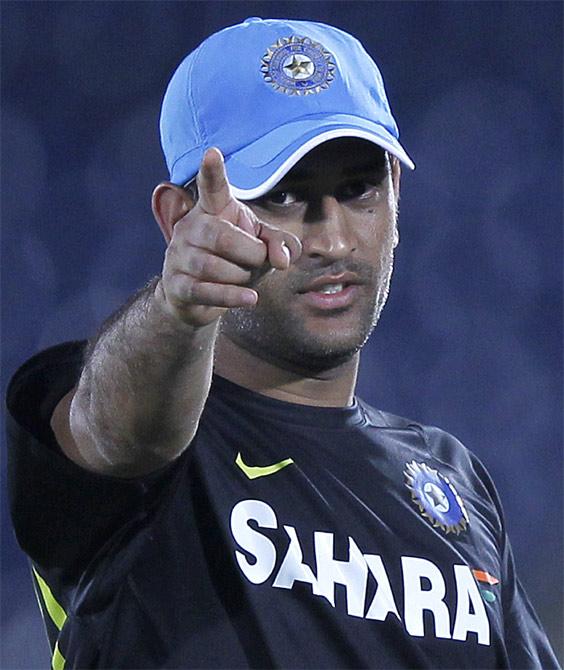
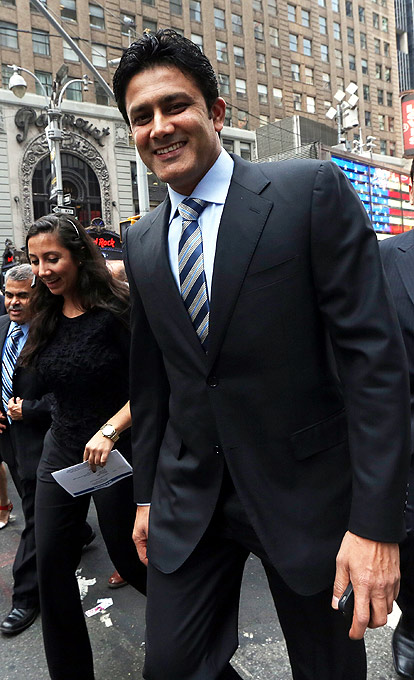
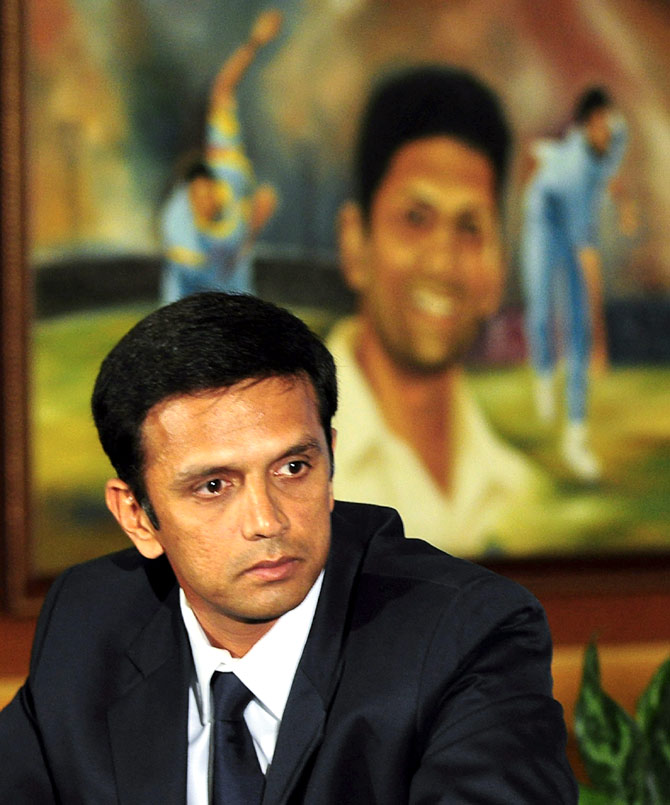
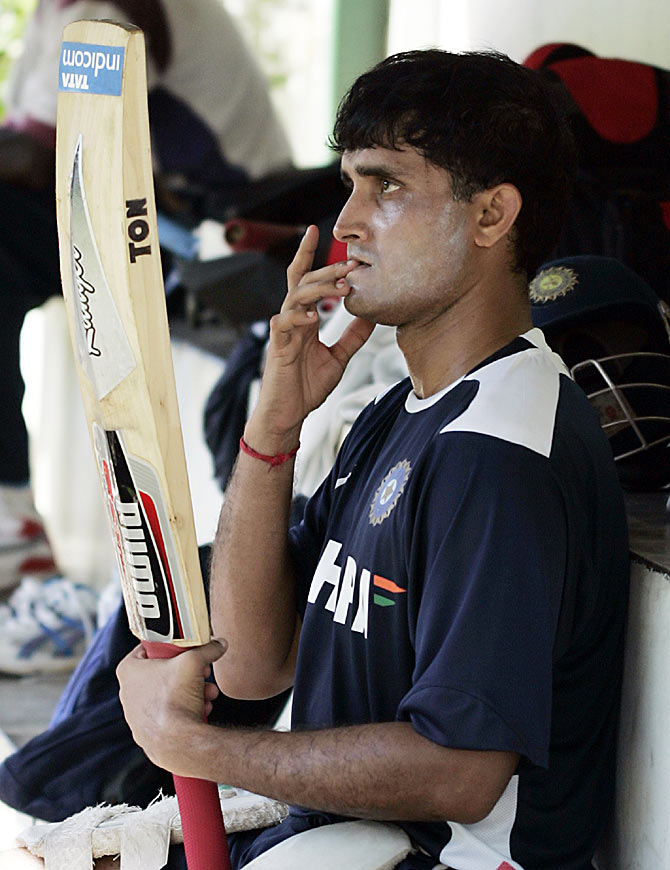
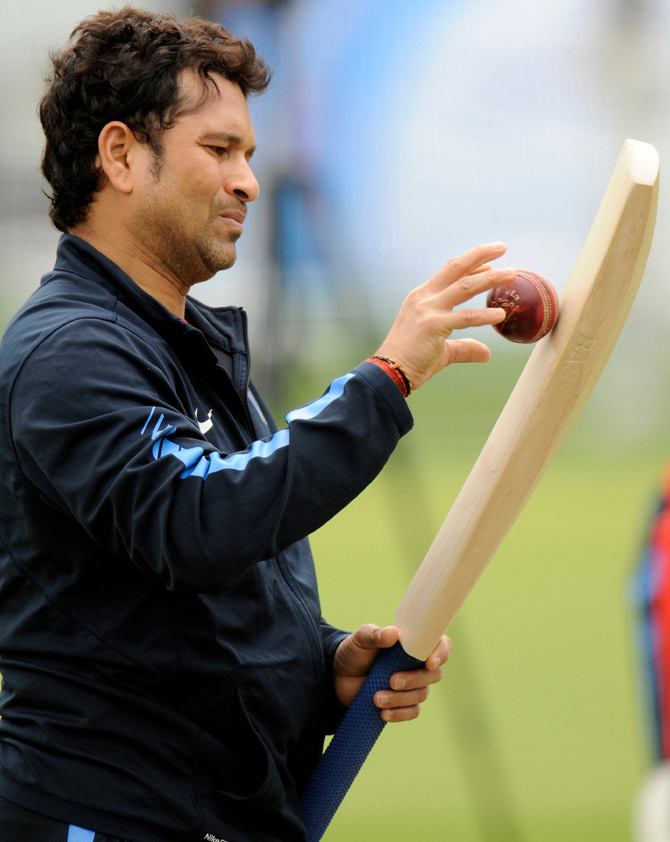
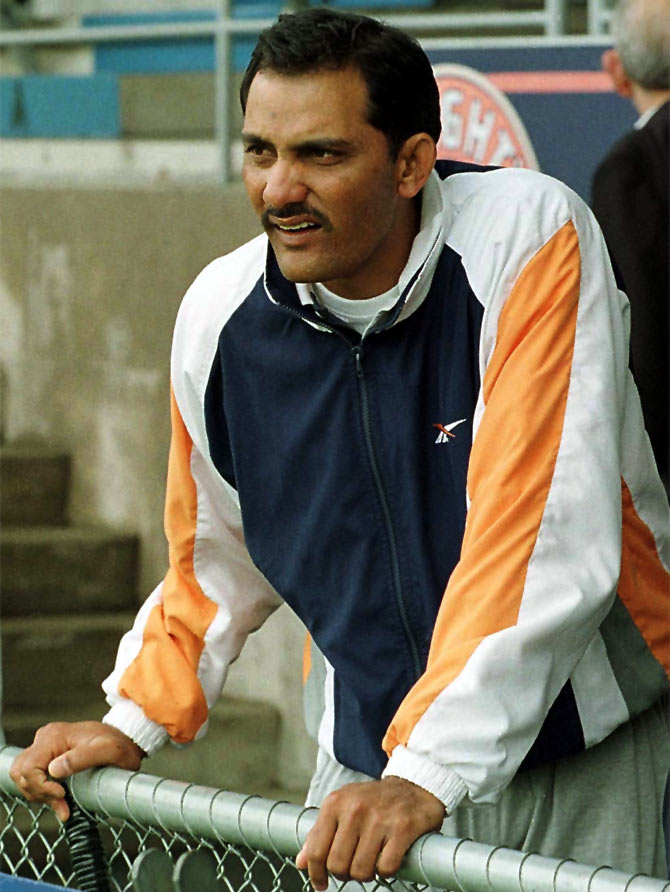
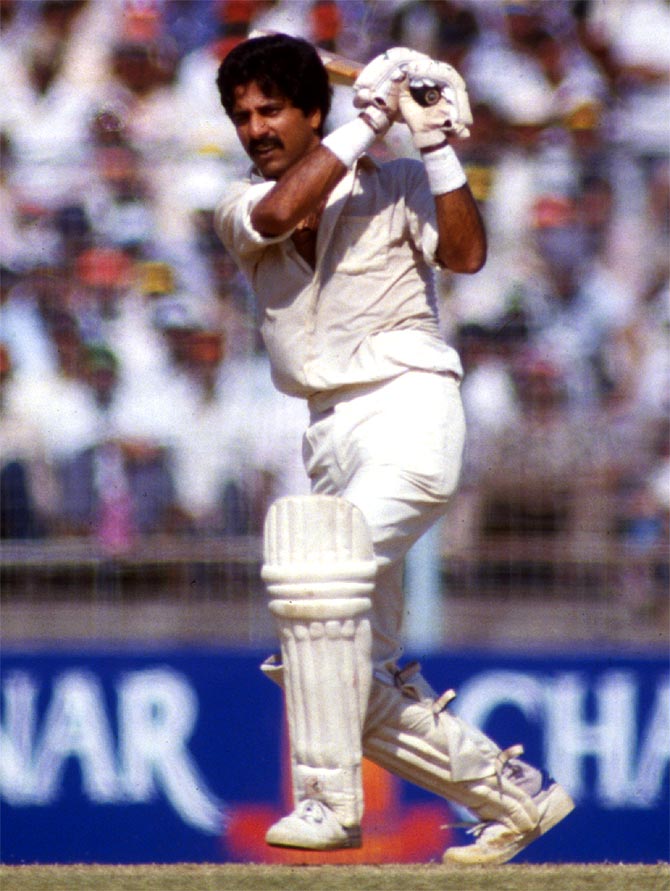
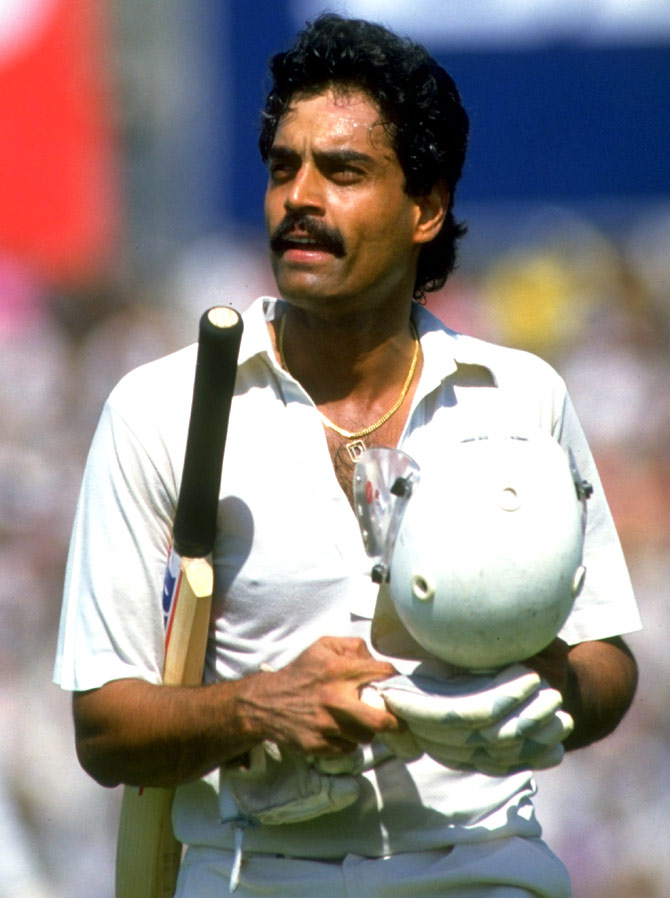
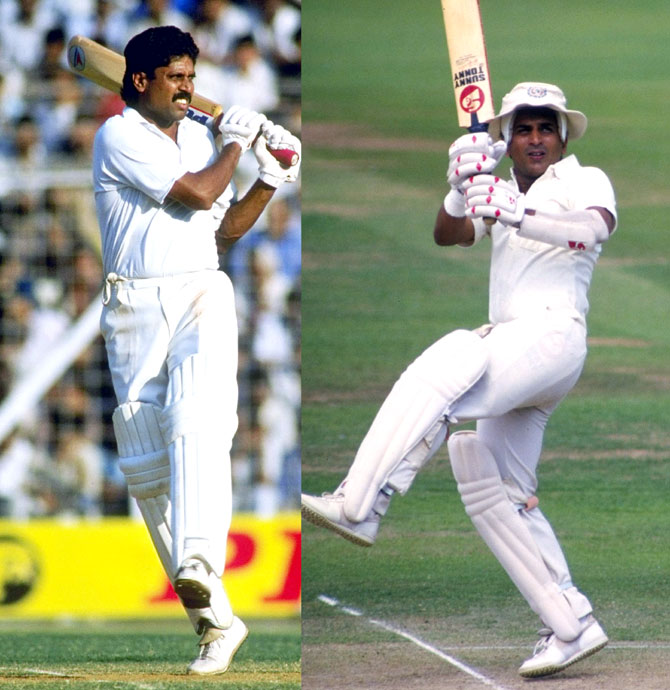
Comment
article